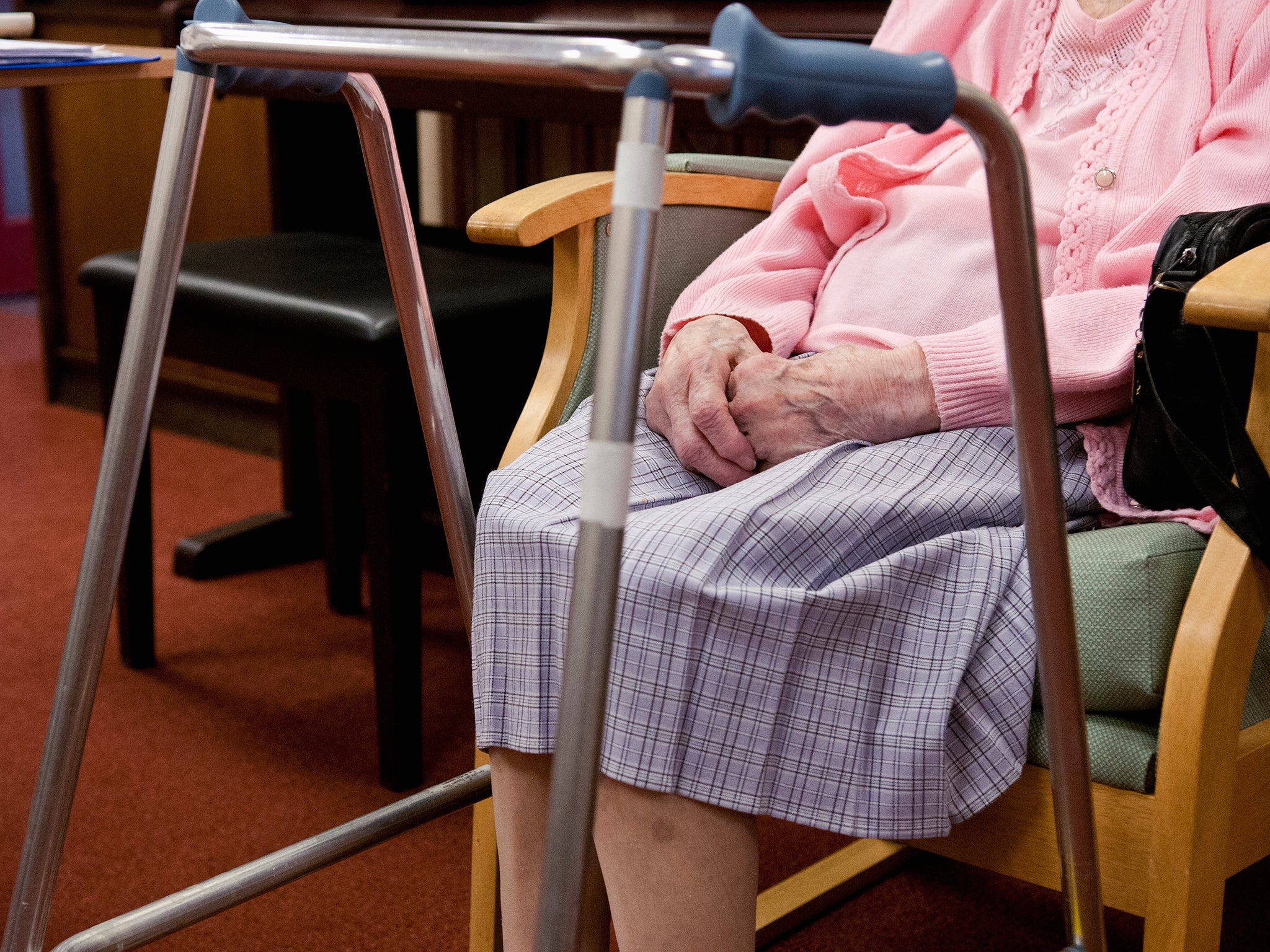Vulnerable people left to suffer chronic loneliness as services 'underfunded and overwhelmed', Labour warns
Nearly half of all local authorities in England spend nothing on dedicated social isolation services, analysis shows

Your support helps us to tell the story
From reproductive rights to climate change to Big Tech, The Independent is on the ground when the story is developing. Whether it's investigating the financials of Elon Musk's pro-Trump PAC or producing our latest documentary, 'The A Word', which shines a light on the American women fighting for reproductive rights, we know how important it is to parse out the facts from the messaging.
At such a critical moment in US history, we need reporters on the ground. Your donation allows us to keep sending journalists to speak to both sides of the story.
The Independent is trusted by Americans across the entire political spectrum. And unlike many other quality news outlets, we choose not to lock Americans out of our reporting and analysis with paywalls. We believe quality journalism should be available to everyone, paid for by those who can afford it.
Your support makes all the difference.Vulnerable people are being left to suffer chronic loneliness as nearly half of all local authorities are spending nothing on specialist social isolation services, new figures suggest.
A probe by Labour found crucial services had been left “underfunded and overwhelmed” as dedicated spending fell by around £1m in two years amid a squeeze on town hall budgets.
It comes as the leader of Britain's GPs warned that being lonely could be as harmful to older people’s health as a chronic long-term condition such as diabetes or high blood pressure, with around 1.1 million elderly people believed to be affected.
The so-called "loneliness epidemic" costs public services around £6,000 per person, according to research by the London School of Economics.
Shadow Health Secretary Jonathan Ashworth said: “Social isolation and loneliness in all its forms is one of the great challenges we face as a society, impacting young and old. Evidence suggests a clear link between loneliness and health outcomes, as well as deprivation.
“Yet sadly the Government have so far failed to implement a national loneliness strategy, and is letting down millions of people of all ages who still wake up each morning experiencing a profound sense of loneliness.
“Additionally, multi million pound cuts on councils are leaving crucial services underfunded and overwhelmed.”
Analysis of official figures found 74 of the 152 local authorities in England spent nothing on dedicated services to combat loneliness in 2017/18, while overall spending also fell from £66,663,000 in 2015/16 to £65,797,000 this year.
Helen Stokes-Lampard, chair of the Royal College of GPs (RCGP), said family doctors were burning out trying to cope with rising numbers of elderly people who suffer from social isolation.
Speaking at the RCGP’s annual conference in Liverpool, she said: "GPs see patients, many of whom are widowed, who have multiple health problems like diabetes, hypertension and depression, but often their main problem isn't medical - they're lonely.
"The guidelines say we should be talking to them about their weight, exercise and prescribing more medication - but really what these patients need is someone to listen to them and to find purpose in life.
"GPs need the time to care - don't make us spend it ticking boxes, preparing for inspections, or worrying that we haven't followed guidelines for fear of repercussions."
Town hall leaders have previously warned that cuts were only a short-term fix which would hit the NHS and social care further down the line.
Cllr Izzi Seccombe, chairman of the Local Government Association's Community Wellbeing Board, said: We have long been calling for loneliness to be recognised as a major public health concern.
“Loneliness and social isolation have a major impact on people’s health and wellbeing.
“We all need to wake up to this problem, which is placing an increasing burden on health and social care.”
A Department of Health spokesperson said: "We want Britain to be the best country in the world in which to grow old, and we know loneliness can affect people earlier on in their lives too.
"That’s why NHS England is leading work to enable GPs to signpost people to carer respite, befriending and leisure activities which will help address loneliness, and we have supported organisations including the Campaign to End Loneliness and Silver Line to raise awareness of social isolation and help lonely people get support in their communities.
“Local authorities are ultimately best placed to make choices for their community.”
Subscribe to Independent Premium to bookmark this article
Want to bookmark your favourite articles and stories to read or reference later? Start your Independent Premium subscription today.
Join our commenting forum
Join thought-provoking conversations, follow other Independent readers and see their replies
Comments